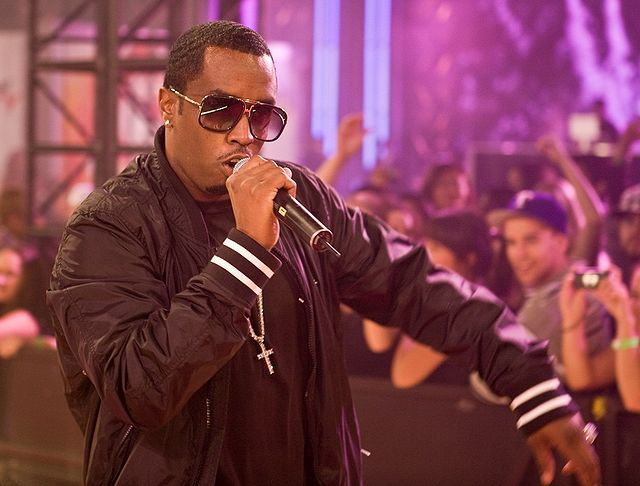Federal prosecutors are pushing back against Sean "Diddy" Combs's defense team in the music mogul's criminal case, expressing "serious and ongoing concerns" for the safety of victims and witnesses. Combs, who faces charges including sex trafficking, racketeering, and prostitution, remains detained in a federal facility in Brooklyn while awaiting his May 2025 trial. The government argues that revealing victim identities or curbing witness rights would endanger individuals involved in the case.
In a recent filing, prosecutors refuted Combs's allegations that the Justice Department leaked a video to CNN showing him assaulting his former girlfriend, Casandra "Cassie" Ventura, in a Los Angeles hotel hallway in 2016. The video, released by CNN last May, shows Combs throwing and kicking Ventura, corroborating her lawsuit claims that he physically abused her during their relationship. "The defendant baselessly accuses 'DHS' agents... of secretly obtaining the Intercontinental Video... and then leaking it to CNN," prosecutors wrote, clarifying, "The government has never, at any point, obtained the video through grand jury process."
The Justice Department asserts that it first saw the video only after CNN aired it, claiming that Combs's own employees could have leaked the footage. According to court documents, government agents sought the video but found it had "disappeared from the hotel's server." The filing states, "The defendant refuses to acknowledge that multiple individuals other than government agents - including some of his own employees - may have had access to the Intercontinental Video."
Combs's defense team has requested an evidentiary hearing on the alleged leak, arguing that it represents an attempt to bias the trial. Defense attorneys Marc Agnifilo and Teny Geragos also demanded that prosecutors release the names of Jane Doe victims cited in Combs's indictment, asserting that withholding names leaves Combs "unfairly" playing a "guessing game" in preparing his defense. "Without clarity from the government, Mr. Combs has no way of knowing which allegations the government is relying on for purposes of the indictment," they stated in their filing.
In response, prosecutors underscored their duty to protect victim anonymity, especially in a case with significant risks of intimidation. "Due to the defendant's history, the government has serious concerns about victim safety and the possibility of witness tampering if a list of victim names were provided to the defendant," they argued, emphasizing that all discovery materials are set to be disclosed by December 31. They added that if Combs's defense needs additional time for trial preparation, he could request a trial delay-a remedy they believe is "appropriate."
The prosecution also opposed Combs's request for a gag order on witnesses, describing it as an "extraordinarily overbroad relief" and "nothing more than another attempt to force the government to prematurely disclose its witness list." They stressed that Combs is "not entitled to the remedies he seeks" and requested that the court reject his motions to suppress the video and limit witness testimony.
Combs's case has drawn extensive media attention. The indictment, which cites a "persistent and pervasive pattern of abuse," follows Ventura's civil lawsuit against Combs, which was settled within 24 hours after its filing. However, the graphic details of her complaint fueled a flood of additional allegations. More than 100 new plaintiffs have since come forward with claims of sexual misconduct, according to Texas attorney Tony Buzbee, who represents several accusers.
The video showing the assault on Ventura has become central to the case, as prosecutors argue it validates claims of abuse. In the footage, Combs is seen dragging Ventura along the hallway floor, which her attorneys allege corroborates claims of a violent confrontation during which Combs, intoxicated, inflicted physical harm. Although Combs initially denied Ventura's allegations, he later issued a public apology, admitting that his "behavior on that video is inexcusable."
Elizabeth Geddes, a former federal prosecutor involved in the R. Kelly case, noted that Combs's indictment follows a "Glecier format," which allows prosecutors to list broad categories of crimes without specifying each individual incident. "By proceeding that way, they don't have to list out every single different predicate racketeering act that they're planning to prove up at trial. They can just list broad categories of crimes [without] alleging the particular instances, or the particular victims," Geddes said, explaining that this approach offers added protections for witnesses in high-profile cases.
With the trial set for next May, both sides are preparing for a contentious pretrial hearing in December. Meanwhile, Combs also faces several unrelated lawsuits, including allegations from a Louisiana design firm claiming he failed to pay for stage displays. Given the crossovers between the civil and criminal cases, prosecutors believe that disclosing victim identities could put individuals at substantial risk of retaliation, a concern the court will consider as it reviews Combs's request.





